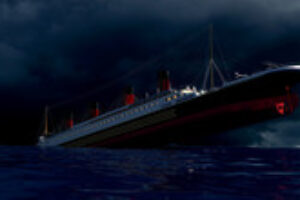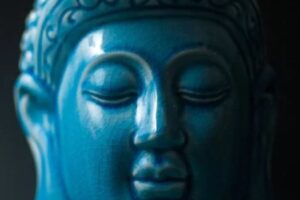
As Father’s Day approaches, we anticipate our annual Precepts Retreat and the sixth annual conference of the Silent Thunder Order (STO) July 16th, 2016. Beginning with Wednesday the 13th arrival and orientation, you are invited to attend the retreat, for any part or all of it (our way of celebrating the one and the many). This time of year we remember our fathers, probably because Mother’s Day was invented first, and then someone said, Oh yeah, maybe we should have one for fathers, too.
I have been fortunate to have what I would call strong relationships with both my biological father, and that person whom we in Zen often refer to as our “dharma father,” our root teacher. Of course, we have many teachers in Zen, just as we have many mentors in our lives, some of whom function as father figures to us, in various ways.
Then, as our lives move on, we find ourselves in similar relationships to younger people, including our own children. Buddha is said to have come to regard all people as his children, and not in some condescending manner.
The problem with being a father is that it usually begins at too young an age for us to have the wisdom that we gain in hindsight. And with young children, some of the damage done by failed relationships is not recoverable, much like data files on a crashed hard drive. We cannot necessarily fix everything that has been broken, and time does not heal all wounds. Relationships, especially biological ones, are exceedingly complex. Frankly, I have not had the kind of relationships I would prefer, to my own biological children, a son and daughter from my first marriage. But they are better now than they once were, and improving.
As an aside, the current meme, “decisions have consequences,” that holds that people’s current conditions are solely a result of decisions that they alone made, is a very one-sided, and perhaps self-congratulating, idea. It seems to me that individuals do not fail; relationships do. This is not to excuse the behavior of any single person in any case, but only to say that we do not exist in a void. We are all products of our environment, acting interdependently, whether we recognize the fact or not.
But I think that the Zen worldview also recognizes that we are accountable for our own actions, as well as inactions, and the karmic consequences that follow. But not to worry—I am not leading up to another set of nostrums on what we should do about the recent “active shooter” incidents, or predictable comments on the campaign from hell—so you do not have to stop reading.
The other problem with being a father is that it is a temporary condition. Or this may be its only saving grace. As Master Dogen is said to have remarked, the Zen life (or perhaps life, period) is one long mistake. Also, “Fall down seven times, get up eight” is attributed to him, which indicates that all we can do in the face of this continuous series of mistakes is to correct, or to try to.
But because we are making these mistakes in relation to others, they are not always possible to correct. Sometimes we have to correct our tendency to correct situations, and especially the behavior of others, and learn to live with the reality, that is partially the result of our own past actions.
We cannot live the lives of our children, and they certainly cannot live ours. The natural order of things dictates that their lives are theirs, and ours are ours, for better or worse.
That “it is all temporary” is one defining characteristic of any and all relationships. And, of course, impermanence is a basic tenet, or given, of Buddhism. The good news is that our bad relationships will not last; the bad news is that the good ones are doomed to end. With one caveat, again based on the acceptance of karma as reality: they may continue in future lifetimes. Cherish or perish the thought. We either get a do-over, or are condemned to meet the same harpies and tormentors over and over again; I suppose until we resolve our karmic differences.
When Buddha was asked why some contemporaneous seekers did not want to listen to him, arguing and rejecting his teachings, he is said to have remarked that in a past life, they had been his students, and he had treated them badly. So their current rude behavior was simply karmic payback.
From this we may take the position that when we are imposed upon by “negative bodhisattvas”—folks who may be teaching us the dharma in ways we do not appreciate; and with no apparent appreciation of the dharma on their part—it is our own fault. If not for something we have done to them or their cohort in this lifetime, maybe something somewhere and somewhen in the past.
But this attitude is unfortunately prone to the doormat syndrome. It does not help anyone, to suffer fools gladly. We cannot be responsible for more than 50%, say, of any relationship. Except of course in uneven situations, such as where the other person is a child, for example; or unarmed—when we are packing an AK47. Then, we may be held totally, 100% accountable, for the karmic kick that is sure to follow. Or at least the 80/20 principle would have to kick in.
Just one quick comment on the predictably endless analysis of motives and influences on the killer that we are treated to in the follow up to these atrocities: It doesn’t matter. It is not that nothing can excuse such behavior, or mitigate its impact. And in terms of forgiveness, who has the right to forgive such crimes? The important point from a Zen perspective is, I think, that none of the circumstances alter the karma.
Here, I would ordinarily beg your indulgence for digressing, or perhaps couch some of my comments as an aside. But really, they are all asides, and every thought is a digression, just as any quote is always taken out of context, by definition. This is all connected, folks; we are fathers (and mothers) to it all. As a parent, we stand as an example to our children, biological or otherwise, in how we relate to, and resolve, these complex and contradictory causes and conditions. And we have a relatively brief time to take our stand.
When this party is over, the father-child relationship comes to an end, at least in terms of what could have-would have-should have happened in this lifetime. We think, if only we could have talked things out, said all the things we wanted to say, it would be different. We would finally have closure. We could finally lay our loved ones to rest. To a degree, maybe, but basically a fantasy, I think.
I cannot see how we can resolve relationships in that manner, even in the best-case scenario. Whatever we may have been able to say or do, it would not have resolved the relationship in the sense of having it be over, complete, and fully satisfactory.
In fact, it seems to me that the ongoing memory of the departed, and our continuing effort toward resolution, is the proof of the reality of the relationship. It is not over, not only until the fat lady sings, but it is not ever really “over.” This, I think, is the long-term view of Buddhism. Including that the act of burying a body is not “laying the soul to rest.” According to Zen, this death is only the next step in an ongoing cycle, on the wheel of rebirth.
And perhaps the ongoingness that we feel in memories of the deceased represents one of Zen’s correlations with science. Any”thing” that is here now has always been here, in one form or another; and will still be here in future, though in different form. This does not resolve our grief at the loss of a loved one, of course, but instead indicates that grief is built in to the very nature of existence. There is no way to be free from suffering in this sense.
When my father died at the age of 70, I experienced a great deal of grief. I was not present when he died, though my older brother and his wife were. When my dharma father, Matsuoka Roshi, died about ten years later at the age of 85, I did not feel any grief at all. I could still feel his presence, and I still can.
In the former case, in retrospect, I think it was because my relationship with my father had been difficult in his declining years, and perhaps more to the point, because he was so manifestly unhappy, and not prepared to die. In the latter case, Sensei’s whole life had been about life and death, precisely, so it would have been inappropriate, in substantial measure, to mourn his death.
This point may be difficult to comprehend, but Huineng’s message to his students, who were distraught over his approaching death, is instructive. He said that if he did not know where he was going, he would be upset as well. But he did, apparently, know exactly where he was going, and so was not fearful. His successor was, if memory serves, the only one not overly concerned about his teacher’s death. Another case you may want to investigate is that of Myozen, Dogen’s senior dharma brother and successor to Eisai, who travelled with him to China and died there, after agonizing over leaving his ailing teacher behind, to die in Japan.
If fathers and mentors are to teach us about life, then surely they must teach us about death. No one knows for sure how s/he is going to die; we cannot know how we will feel and behave at the time. I had the good fortune to spend a week with my older brother while he was in hospice, which I wrote about before; he died with great dignity and peace, in spite of less-than-ideal circumstances, dying in the presence of his sons, as a final, fatherly act of teaching them how to die.
When we remember our fathers, as well as our mothers, I think this is what we remember most. Like us, they faced the same basic problems of existence, and did their best to live their lives out with grace and dignity. If they failed us in some wise, we should see that failure in ourselves, and not as entirely their fault. We are not them, and they are not us.
But, as the famous Zen saying goes, “Buddhas and Ancestors of old were as we; we in the future shall be buddhas and ancestors.” Faith in our fathers, rather than in the faith of our fathers. We owe them our lives, after all, at least 50%. Happy Fathers’ Day.








